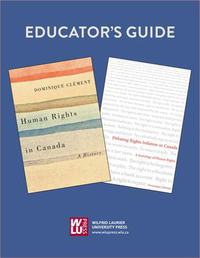This curriculum document has been created to supplement the books by Dominique Clément entitled Debating Rights Inflation in Canada: A Sociology of Human Rights and Human Rights in Canada: A History. This document is intended for, but not limited to, use in the Issues in Human Rights course Grade 12, University Preparation course. This course, as stated in the Ontario curriculum, “combines the expectations for Interdisciplinary Studies, Grade 12, University Preparation with selected expectations from two or more other courses (e.g., Canadian and World Politics, Grade 12, University Preparation; Canadian and International Law, Grade 12, University Preparation; Studies in Literature, Grade 12, University Preparation; Media Studies, Grade 11, Open). This course also involves the examination of case studies related to modern human rights issues (e.g., child labour, the treatment of Japanese Canadians during World War II, the Holocaust, apartheid, genocide in Rwanda) and the exploration of individual and societal rights and responsibilities. Students will use interdisciplinary approaches, resources and research methods to investigate human rights themes in literature and media, and to examine the development of national and international laws that support or negate human rights. They will also analyse real-life situations and suggest solutions that demonstrate their awareness of the social contexts of those situations.” Ontario Curriculum: Canadian and World Studies, 2015 This curriculum document has been designed to be student led, with learning experiences intentionally created to ignite the passion that students bring to the classroom with regard to issues of human rights and social justice. There have been ongoing debates about human rights issues since before they have been named as such, and given the current political issues globally, rights debates have been centred in many media reports. Our hope is that this document will have students centre in on what changes they would like to see in their local community, country, and the world. In order to support teachers in light of the remote learning models of schooling that may be taking place due to the COVID-19 pandemic we have provided many online resources that students can utilize for a productive learning experience whether physically in classrooms or in remote online learning environments. Given that human rights can be a sensitive topic, we strongly suggest setting norms within the classroom that speak to respect, kindness, and empathy. Included are some guidelines around creating these norms in learning environments through the use of circles, which can help support caring and supportive learning environments that demonstrate love. “ … when we teach with love we are better able to respond to the unique concerns of individual students, while simultaneously integrating those concerns into the classroom community. When teachers work to affirm the emotional well-being of students, we are doing the work of love (bell hooks, Teaching Critical Thinking: Practice Wisdom, p. 160). In addition, journaling can also be considered as a way to build community, learn and self-reflect.


